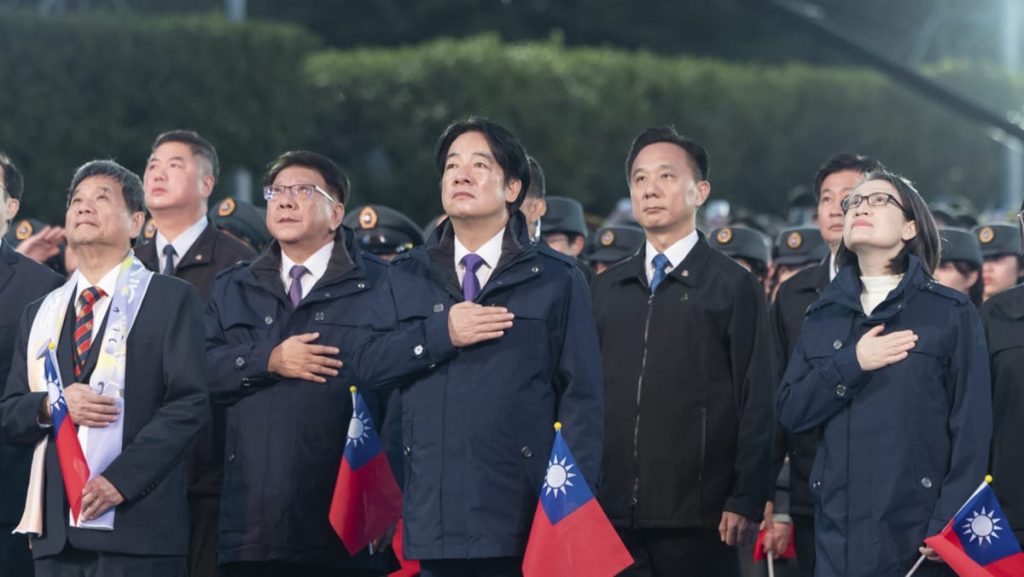Taiwan’s democratic government is facing an escalating onslaught of disinformation orchestrated by China, aimed at eroding public trust in its institutions and weakening its close relationship with the United States. This sophisticated campaign leverages the pervasiveness of online platforms, particularly those popular among younger demographics, to disseminate a torrent of false and biased narratives. According to Taiwan’s National Security Bureau, the volume of such disinformation surged by 60% in 2024, reaching a staggering 2.16 million instances, a significant increase from 1.33 million in the previous year. This deluge of manipulated information represents a clear and present danger to Taiwan’s democratic processes and its ability to maintain its independent status.
The methods employed in this disinformation campaign are multifaceted and increasingly sophisticated. China exploits social media platforms like Facebook and X (formerly Twitter), as well as youth-oriented platforms like TikTok, to spread its propaganda. The strategy involves the creation of a vast network of “inauthentic accounts” – numbering over 28,000 in 2024, a substantial rise from the previous year – to disseminate pro-China content and manipulate online discussions. Furthermore, advanced technologies like artificial intelligence are used to generate deepfake videos and other fabricated content, adding another layer of complexity to the disinformation landscape. This multi-pronged approach aims to saturate the online sphere with pro-China narratives, creating an echo chamber that amplifies Beijing’s messaging and drowns out dissenting voices.
The targets of this disinformation campaign are carefully chosen to maximize its impact. By focusing on younger audiences who are more active on social media and video platforms, China aims to shape their perceptions of cross-strait relations and influence their political leanings. This strategy represents a long-term investment in shaping public opinion and potentially swaying future generations towards a more pro-China stance. Simultaneously, the disinformation campaign targets broader segments of Taiwanese society, seeking to undermine confidence in the government, sow discord, and create an atmosphere of uncertainty and fear.
Beyond the digital realm, China’s influence extends to traditional media outlets within Taiwan. Many media owners have significant business interests in mainland China, creating a vulnerability to pressure and self-censorship. This dynamic further complicates the information landscape, making it challenging for citizens to access unbiased and accurate reporting on cross-strait relations. The confluence of online disinformation and compromised traditional media creates a formidable challenge for Taiwan’s efforts to maintain a free and open press.
The underlying motivation for China’s disinformation campaign is rooted in its long-standing claim over Taiwan. Beijing views Taiwan as an integral part of its territory and has repeatedly vowed to bring it under its control, even by force if necessary. Chinese leader Xi Jinping has reiterated this stance, emphasizing the inevitability of unification and warning against external interference, particularly from the United States, Taiwan’s primary ally. The disinformation campaign serves as a crucial component of this broader strategy, aiming to weaken Taiwan’s resolve, erode international support for its independence, and create a more favorable environment for potential future actions.
The escalating tensions between China and Taiwan underscore the critical importance of combating disinformation and maintaining a robust, independent media landscape. Taiwan’s government, along with its international partners, must prioritize efforts to identify and expose disinformation campaigns, promote media literacy among citizens, and strengthen the resilience of its democratic institutions. The fight against disinformation is not merely a technical or political challenge; it is a fundamental battle for the preservation of democratic values and the right of self-determination. Taiwan’s ability to navigate this complex information landscape will be crucial in determining its future and the future of democracy in the region.

